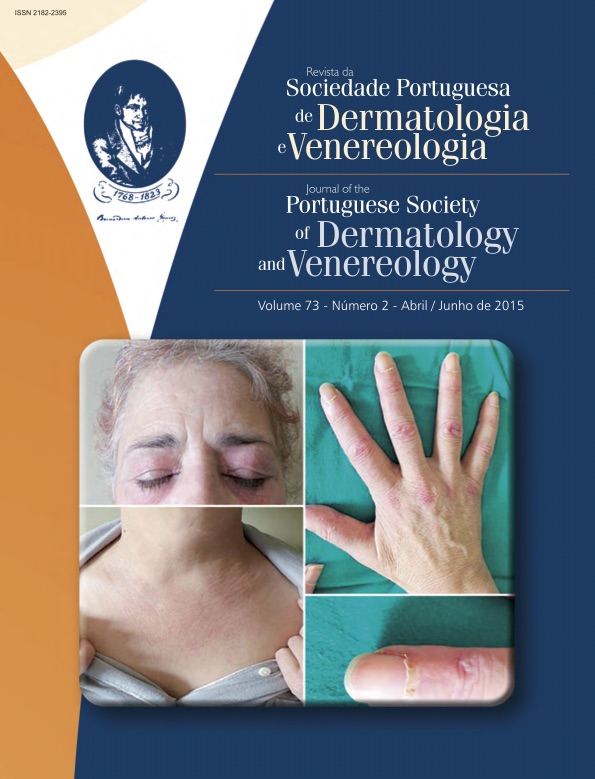DELAYED HYPERSENSITIVITY TO METALS IN TOTAL KNEE PROSTHESIS – A REALITY TO KEEP IN MIND
Abstract
Delayed-type hypersensitivity to metals in patients with orthopedic implants may cause cutaneous lesions and/or pain, effusion and functional impairment of the prosthesis. As these signs are common to periprosthetic joint infection, the differential diagnosis is difficult, but metal hypersensitivity has to be considered as a possible cause of this growing problem. Seven months after total knee arthroplasty, a female patient developed pain and functional impairment of the knee, cutaneous erythema, swelling and a nodule with serous-hematic drainage in the inferior limit of the surgical scar. Microbiologic study was repeatedly negative. Patch testing showed reactivity to chromium (potassium dichromate 0.5% pet), a constituent of the metallic prosthesis, and also to titanium oxide 0.5% pet, neomycin 20% pet and gentamicin 20% pet, which might explain the inflammatory reaction surrounding the prosthesis. Although rare, there is an association between metal hypersensitivity and implant failure. Therefore, in the presence of skin lesions around the prosthesis implantation site, metal hypersensitivity should be considered and studied.
Downloads
All articles in this journal are Open Access under the Creative Commons Attribution-NonCommercial 4.0 International License (CC BY-NC 4.0).








